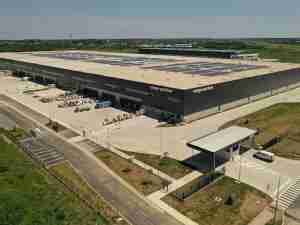UPS pledges to strengthen capacity & drive multi-sector humanitarian relief partnerships
posted by AJOT | Mar 22 2016 at 09:32 AM | Logistics
Announces Co-hosting of Private Sector Frontiers Roundtable Series
Dubai - Global logistics leader, UPS® (NYSE:UPS) celebrates today its first year of partnership with Dubai’s International Humanitarian City (IHC). To showcase its commitment to global humanitarian relief efforts, UPS is exhibiting its efforts for a second day at the 2016 Dubai International Humanitarian Aid & Development Conference (DIHAD) taking place 21-23 March.
“To better tap the many capabilities of our worldwide networks, we increased our humanitarian program by 40% worldwide this year,” said Rami Suleiman, Vice President of UPS for the Indian Subcontinent, Middle East and Africa region. “A combination of grants and in-kind services will go to more than 30 NGOs, non-profit organizations and United Nations (UN) agencies for a total of $14 million. And I am pleased to say that UPS is committed to the UAE. One year on, we already see concrete benefits after having signed a crucial Memorandum of Understanding with IHC. The delivery of aid to Nepal in April 2015, which took off from UAE is a perfect example.”
UPS chose Dubai for its hub operations based on its strategic location linking the east and west. From the UAE, UPS supports its partners by providing crucial aid to help maintain the health, welfare and dignity of its beneficiaries and the communities responding to this crisis. Response to the Nepal disaster with $800,000 in-kind and monetary support included four UPS charter flights carrying vital supplies such as tents, plastic sheets and lanterns. With the world refugee crisis growing and the risk of other humanitarian tragedy increasing, partnerships like the UPS-IHC make a difference in a world in need of vital support when disaster strikes.
As part of a joint thought leadership effort, UPS in partnership with IHC will host the second session of the Private Sector Frontiers Roundtable. This leadership dialogue series provides an avenue for business leaders to discuss and explore recommendations to improve and reshape the humanitarian sector. The unprecedented challenges of the 2014 West Africa Ebola outbreak and the world refugee crisis demonstrate the need to improve the world’s ability to prevent and better respond to humanitarian crises. The 19 April session will bring multi sector leaders together to develop a critical blueprint that outlines how global cities can better prepare and respond to global epidemics.





_-_28de80_-_d88095865f9f1cbb4ecdd37edf61c63efd603428_lqip.png)

